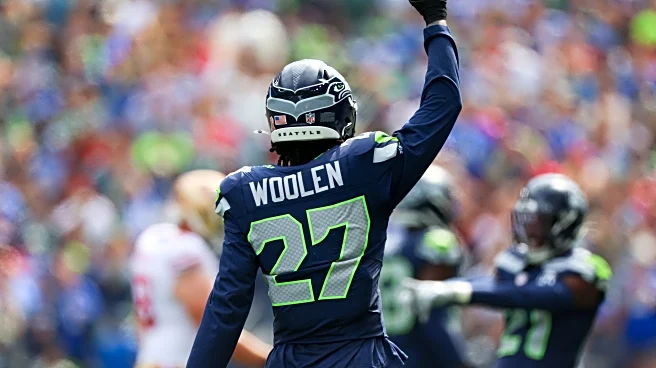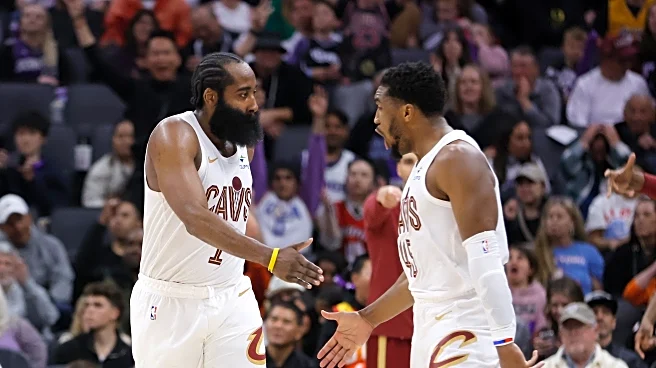What's Happening?
Daniel Day-Lewis, renowned for his intense and immersive acting style, has returned to the big screen after an eight-year retirement. His comeback is marked by the film 'Anemone', directed by his son, Ronan Day-Lewis. The film, which premiered at the New York Film Festival, features Day-Lewis as Ray Stoker, a hermit living in isolation. The storyline revolves around familial relationships, with Sean Bean playing his brother Jem. Day-Lewis had previously retired to explore other interests, including violin making, but was drawn back to acting through the collaborative process with his son. The film represents a significant personal and professional milestone for both father and son, as it is Ronan's directorial debut and Day-Lewis's first screenwriting credit.
Why It's Important?
Daniel Day-Lewis's return to acting is significant for the film industry, given his reputation as one of the most talented actors of his generation. His involvement in 'Anemone' not only highlights the potential for familial collaboration in filmmaking but also challenges the misconceptions surrounding Method acting, which Day-Lewis has often been associated with. The film's release could influence public and critical perceptions of acting techniques and the creative process. Additionally, Day-Lewis's return may inspire other retired actors to reconsider their hiatus, potentially enriching the industry with seasoned talent.
What's Next?
Following the release of 'Anemone', Daniel Day-Lewis may continue to explore acting opportunities, given his renewed interest in the craft. The film's reception could impact Ronan Day-Lewis's future projects, establishing him as a promising director. Industry stakeholders, including film critics and audiences, will likely watch closely to see if Day-Lewis's return influences broader trends in acting and filmmaking. The success of 'Anemone' could lead to further collaborations between established actors and emerging filmmakers, fostering innovation in the industry.
Beyond the Headlines
The collaboration between Daniel Day-Lewis and his son Ronan highlights the evolving dynamics of family involvement in creative industries. It underscores the potential for intergenerational partnerships to bring fresh perspectives and narratives to the film world. This development may encourage other families in the industry to explore similar collaborations, potentially leading to a new wave of storytelling that blends experience with innovation. Additionally, Day-Lewis's return challenges the notion of retirement in creative fields, suggesting that passion and creativity can transcend traditional career timelines.










